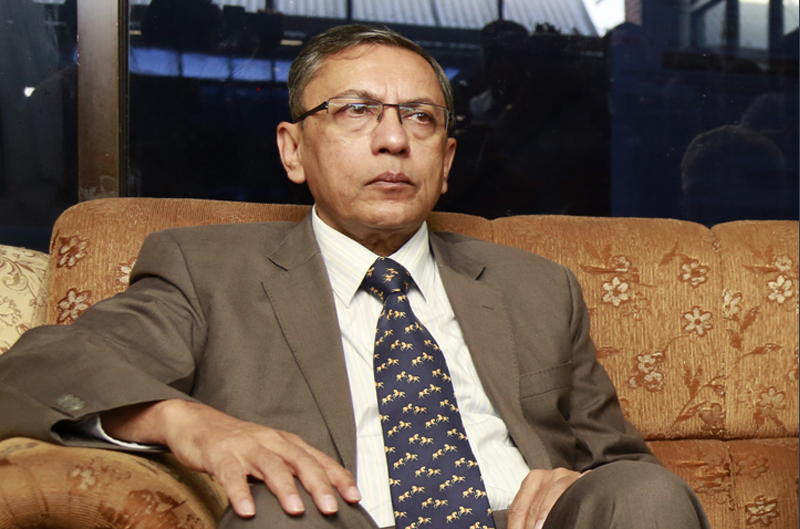Rae urges trade expansion between Nepal and India
Kathmandu, March 21
Ambassador of India to Nepal Ranjit Rae has said that Nepal and India should set the target to expand the trade volume between the two countries, as ample efforts has been made so far for facilitating trade by lowering the trade barriers and reducing the cost of trade.
Speaking at the programme jointly organised by the Nepal-India Chamber of Commerce and Industry (NICCI) and the Embassy of India in Kathmandu titled ‘Prime Minister KP Oli’s India visit, present status of trade, business and investment’ today, the Indian ambassador said that a target for trade expansion could also push both countries to resolve the issues that have been hindering trade in an immediate and effective manner.
Expansion of trade, as per the ambassador, will end the rhetoric of trade barriers that both countries have been raising since last one decade, like establishment of internationally certified labs in Nepal, other trade-related infrastructures and process simplification of trade.
As Nepal-India commerce secretary-level talks has been scheduled for the near future, the ambassador also urged private sector to look into how Nepal and India could double the trade volume in next five years. Currently, trade between Nepal and India hovers at around $5 billion per annum.
Ambassador Rae also suggested the government and private sector to showcase the investment opportunities in the country by showcasing the projects in the economic hubs of India via road shows and through other means to lure the Indian investors to Nepal. Even as Indian companies in Nepal have been making good profit, there has been no significant fresh investment from India in recent years.
Indian ambassador strongly condemned the incidents of attack on Indian companies time and again by splinter groups and said that such events have been discouraging Indian investors to come to Nepal. Stating that Nepal also should introspect why there had been no significant fresh investment in Nepal in the last decade, Rae added, “Other foreign investors are also looking at why Indian investor are discouraged from investing in Nepal.” He also advised to improve investment climate through reforms in legal and administrative fronts. A broad political consensus on economic reform could give a positive message to investors, according to him.
Meanwhile, Ambassador of Nepal to India Deep Kumar Upadhyay said that agreement in four transit and transport agreements between the two countries during Prime Minister KP Sharma Oli’s visit to India last month have paved the way to expand trade with the southern neighbour as well as with third countries.
The power trade agreement with India has opened space for hydropower development in Nepal, which could be a major component in reducing the alarming trade gap with India. As fuel supply situation is still erratic in the country, Upadhyay advised Nepal Oil Corporation (NOC) to request Indian Oil Corporation for additional supply for certain period to restore normalcy.
Speaking as a keynote speaker in the programme, Shakti Sinha, chairman of South Asian Institute for Strategic Affairs — a New Delhi-based think-tank — suggested Nepal to tap grant and investment from India to harness hydro resources, as India is considered the only market for Nepal’s hydroelectricity. This, as per him, could help narrow down huge trade gap with India.
With regards to attracting Indian investment to Nepal, Sinha opined that the county could tap the certain pie of outward Indian foreign investment by providing non-discriminatory national treatment to the investors.






